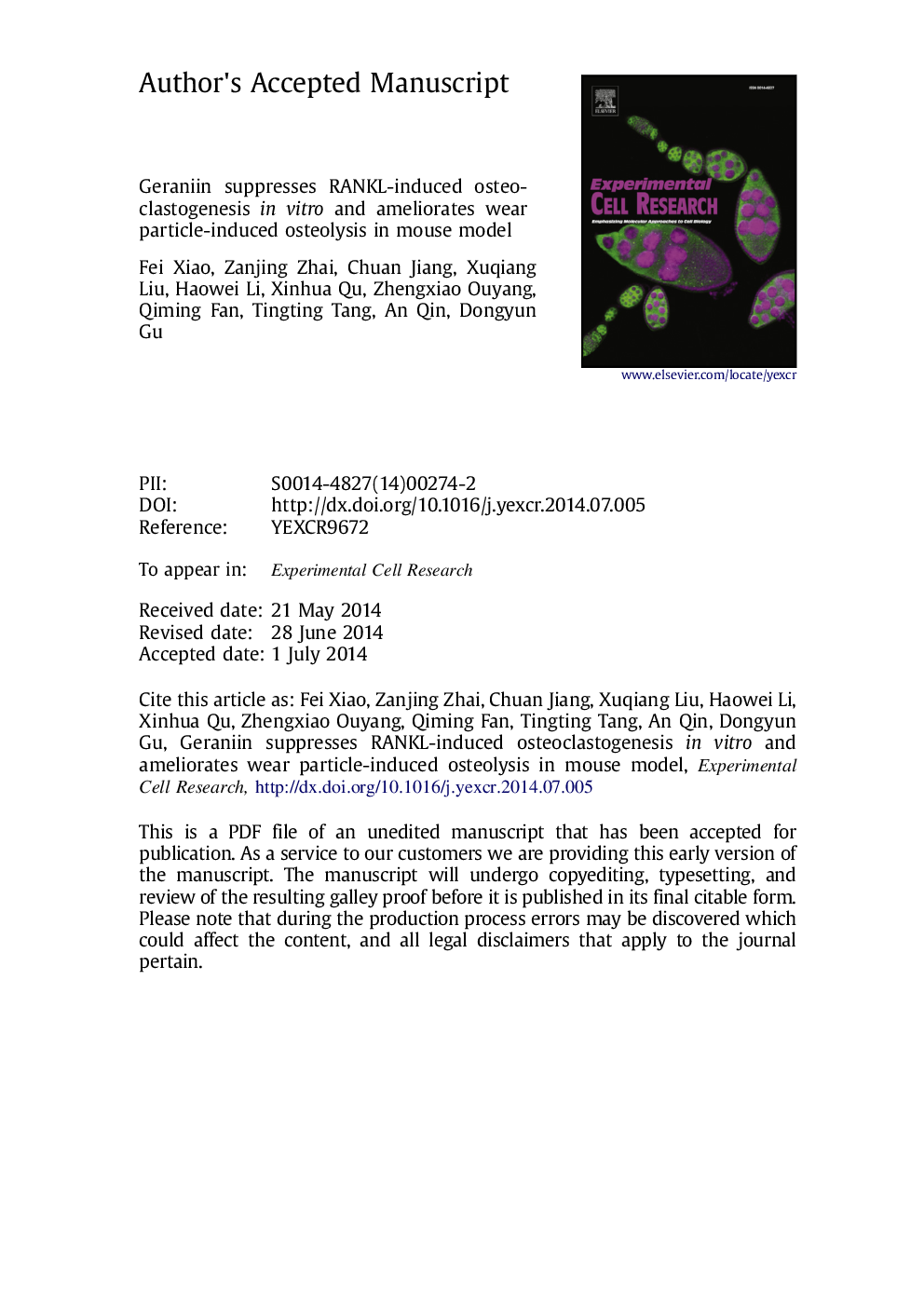| Article ID | Journal | Published Year | Pages | File Type |
|---|---|---|---|---|
| 10903969 | Experimental Cell Research | 2015 | 24 Pages |
Abstract
Wear particle-induced osteolysis and subsequent aseptic loosening remains the most common complication that limits the longevity of prostheses. Wear particle-induced osteoclastogenesis is known to be responsible for extensive bone erosion that leads to prosthesis failure. Thus, inhibition of osteoclastic bone resorption may serve as a therapeutic strategy for the treatment of wear particle induced osteolysis. In this study, we demonstrated for the first time that geraniin, an active natural compound derived from Geranium thunbergii, ameliorated particle-induced osteolysis in a Ti particle-induced mouse calvaria model in vivo. We also investigated the mechanism by which geraniin exerts inhibitory effects on osteoclasts. Geraniin inhibited RANKL-induced osteoclastogenesis in a dose-dependent manner, evidenced by reduced osteoclast formation and suppressed osteoclast specific gene expression. Specially, geraniin inhibited actin ring formation and bone resorption in vitro. Further molecular investigation demonstrated geraniin impaired osteoclast differentiation via the inhibition of the RANKL-induced NF-κB and ERK signaling pathways, as well as suppressed the expression of key osteoclast transcriptional factors NFATc1 and c-Fos. Collectively, our data suggested that geraniin exerts inhibitory effects on osteoclast differentiation in vitro and suppresses Ti particle-induced osteolysis in vivo. Geraniin is therefore a potential natural compound for the treatment of wear particle induced osteolysis in prostheses failure.
Related Topics
Life Sciences
Biochemistry, Genetics and Molecular Biology
Cancer Research
Authors
Fei Xiao, Zanjing Zhai, Chuan Jiang, Xuqiang Liu, Haowei Li, Xinhua Qu, Zhengxiao Ouyang, Qiming Fan, Tingting Tang, An Qin, Dongyun Gu,
